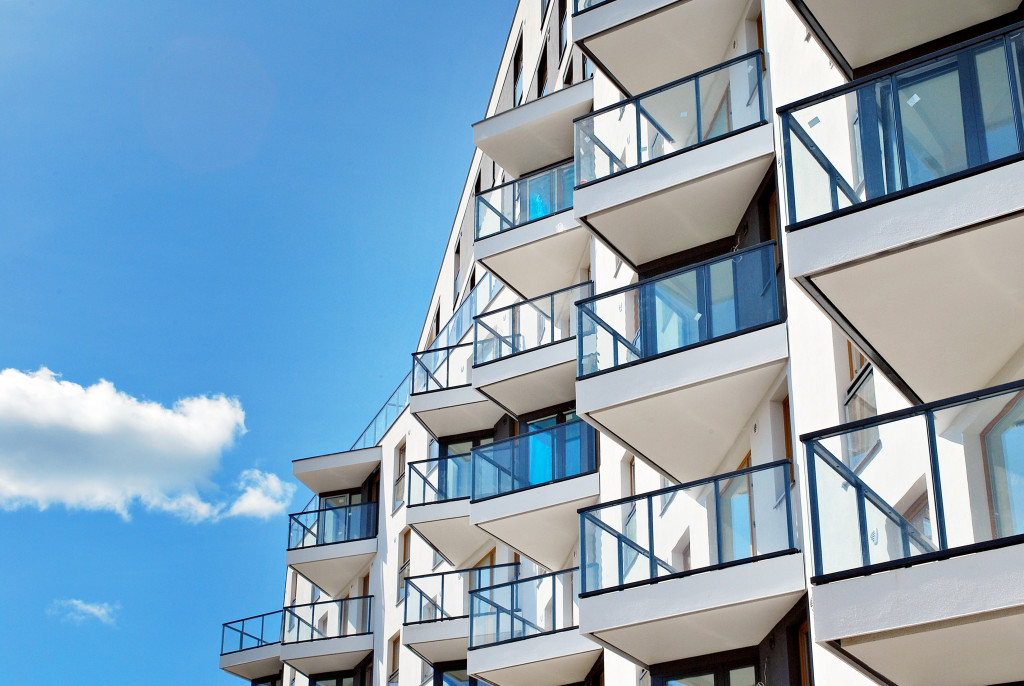- Real estate contributes to 40% of global carbon emissions, necessitating sustainable building practices to reduce environmental impact.
- Adopting sustainable measures in properties can save money on utility bills and attract eco-conscious tenants.
- Eco-friendly upgrades can enhance property value, generate higher rents, and qualify for government incentives.
- Landlords can promote sustainability through energy audits, investing in energy-efficient appliances, and improving insulation.
- Sustainability in real estate is not just beneficial for the environment, but it’s a requirement and advantageous for landlords.
As a landlord, you may think that making your properties more sustainable is an unnecessary expense or an inconvenience. However, there are plenty of reasons why going green can benefit you in the long run. Not only will it help the environment, but it can also save you money and even attract more tenants. Here’s what you need to know about sustainability today, reasons to make your properties more sustainable, and ways to start this endeavor.
Sustainability in Real Estate
It’s estimated that the real estate industry is responsible for 40% of carbon emissions globally. It’s a significant number, and it’s clear that the industry has a massive impact on our environment. With climate change and environmental concerns becoming more pressing, there is no doubt that sustainable practices need to be implemented in the real estate sector.
Sustainability in real estate refers to building practices that reduce the negative impact on the environment. It involves using renewable energy sources, promoting energy efficiency, and reducing waste. By incorporating sustainable practices into your properties, you can reduce your carbon footprint and contribute to a healthier planet.
Reasons to Make Your Properties More Sustainable
There are various reasons why you should make your properties more sustainable. Here are some of those reasons:

1. Save Money on Utility Bills
One of the most obvious reasons to make your properties more sustainable is to save money on utility bills. It’s estimated that households spend around 2,700 EUR annually on bills alone.
By investing in energy-efficient appliances, such as refrigerators, dishwashers, and washing machines, you can significantly reduce your energy usage and, therefore, your bills. You can also install low-flow toilets, showerheads, and faucets, which use less water and can lower your water bills. Furthermore, by adding insulation, sealing air leaks, and improving ventilation, you can reduce your heating and cooling costs.
2. Attract Environmentally Conscious Tenants
An increasing number of renters are looking for eco-friendly properties, meaning sustainable features can attract more tenants. By demonstrating your commitment to sustainability, you can differentiate yourself from other landlords and charge higher rents. Furthermore, you can market your properties as green and promote your sustainability efforts on listing websites and social media platforms.
3. Improve Your Properties’ Value
Making your properties more sustainable can also increase their resale value. Eco-friendly features, such as solar panels and geothermal heating, can add significant value to your properties and make them more appealing to potential buyers. Additionally, energy-efficient properties are generally considered to be in a better condition and, therefore, more valuable than non-energy-efficient properties.
4. Do Your Part For The Environment
As a landlord, you have a responsibility to reduce your carbon footprint and help the environment. By making sustainable choices, such as using eco-friendly cleaning products and recycling, you can significantly reduce your environmental impact. Furthermore, you can encourage your tenants to adopt sustainable habits, such as using public transportation and composting.
5. Take Advantage of Government Incentives
Finally, making your properties more sustainable can make you eligible for government incentives. For example, you may be able to receive tax credits, rebates, grants, or loans for installing solar panels, wind turbines, or other renewable energy systems. Additionally, you may save money on insurance premiums by reducing your risks of damage or liability.
Ways to Start Making Your Properties More Sustainable
Now that you know the benefits of sustainability in real estate, here are some ways to start making your properties more sustainable:

1. Conduct an Energy Audit
The first step to improving sustainability in your properties is to conduct an energy audit. This will help you identify areas where you can reduce energy consumption and make necessary improvements. You can get a residential EPCS (Energy Performance Certificate) to evaluate your property’s energy efficiency and receive recommendations for making it more sustainable. You can then use this information to prioritize your sustainability efforts and make a plan.
2. Invest in Energy-Efficient Appliances
As mentioned earlier, investing in energy-efficient appliances can significantly reduce your utility bills. Look for appliances with ENERGY STAR® labels, as these are certified by the government to be energy-efficient. Additionally, consider replacing traditional light bulbs with energy-saving LED lights. These may have a higher upfront cost, but they last longer and consume less energy.
3. Add Insulation and Seal Air Leaks
Heating and cooling account for a significant amount of energy usage in households. By adding insulation to your properties’ walls, floors, and attics, you can prevent heat loss during colder months and reduce the need for heating.
Making your properties more sustainable is not just beneficial for the environment, but it also has numerous advantages for you as a landlord. By adopting energy-efficient appliances, improving insulation, and taking advantage of government incentives, you can reduce costs, increase your properties’ value, and appeal to a broader range of tenants. Remember, sustainability is no longer an option but a requirement in the real estate industry.

